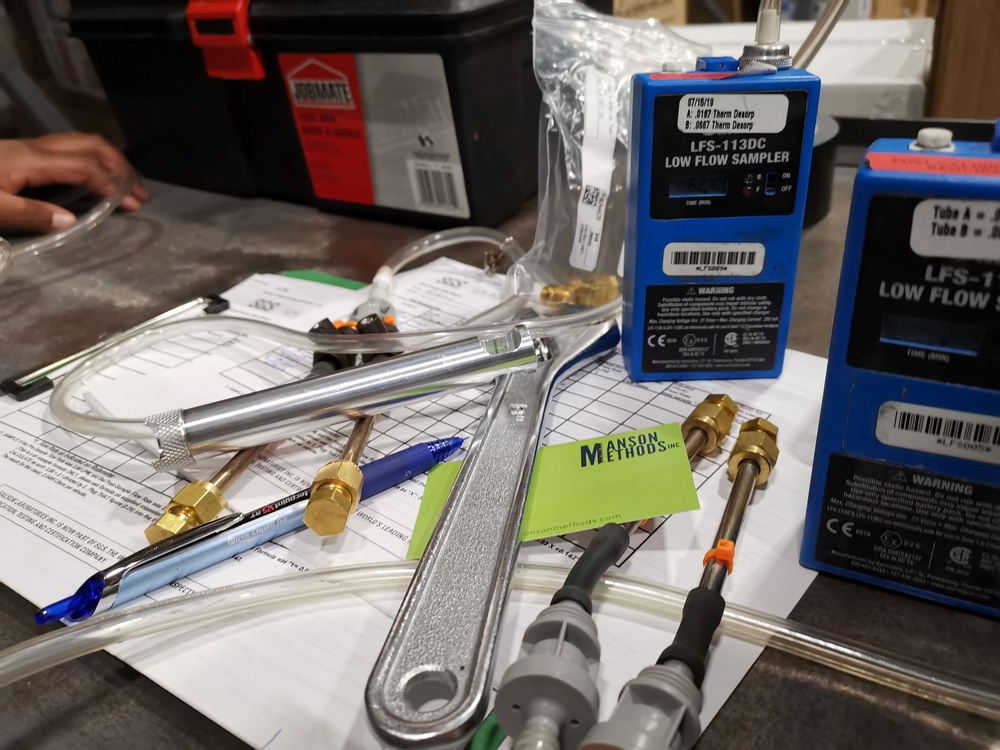
The Vital Importance of Industrial Hygiene Assessments
- Manson Methods Inc.
In today's rapidly evolving industrial landscape, the health and well-being of workers are paramount. The implementation of effective occupational health and safety measures is crucial to safeguarding employees from potential hazards. One essential tool in this regard is the industrial hygiene assessment. By evaluating and controlling workplace hazards, these assessments play a pivotal role in ensuring a safe and healthy working environment. In this blog post, we will explore the significance of industrial hygiene assessments and shed light on why they are an indispensable aspect of modern workplaces.
Cost Savings:
While investing in industrial hygiene assessments may seem like an additional expense, it is actually a cost-saving measure in the long run. By proactively identifying and addressing workplace hazards, companies can avoid potential accidents, worker compensation claims, legal battles, and productivity losses associated with occupational illnesses. Furthermore, an effective industrial hygiene program reduces absenteeism due to illness, lowering overall healthcare costs for both employees and employers.
Identification of Workplace Hazards:
Industrial hygiene assessments serve as a comprehensive method for identifying workplace hazards that could potentially jeopardize employee health. These hazards can range from chemical exposures and physical agents to ergonomic issues and biological contaminants. Through meticulous evaluation and monitoring, industrial hygienists can pinpoint areas of concern and develop effective strategies to mitigate risks.
Prevention of Occupational Illnesses and Injuries:
By proactively assessing and managing workplace hazards, industrial hygiene assessments help prevent occupational illnesses and injuries. Through a systematic approach that includes hazard identification, risk assessment, and control implementation, potential health risks can be minimized or eliminated altogether. By focusing on prevention, rather than reaction, these assessments significantly reduce the likelihood of accidents, illnesses, and long-term health complications among workers.
Regulatory Compliance:
Industrial hygiene assessments are not only good practice but often a legal requirement. Regulatory bodies enforce specific standards and guidelines to ensure workplace safety and protect employee health. Failing to comply with these regulations can result in severe penalties, legal repercussions, and damage to a company's reputation. Regular industrial hygiene assessments ensure compliance with relevant regulations, providing a shield against potential liabilities.
Improved Employee Productivity and Morale:
A safe and healthy work environment fosters higher employee morale and productivity. When workers feel secure in their surroundings and are confident that their health is prioritized, they are more likely to be motivated and engaged in their tasks. Industrial hygiene assessments contribute to creating such an environment, ultimately boosting employee satisfaction, retention, and overall productivity.
Conclusion:
Industrial hygiene assessments are an indispensable aspect of workplace safety and employee well-being. By systematically identifying and mitigating workplace hazards, these assessments ensure a healthy environment, prevent occupational illnesses and injuries, and enhance overall productivity. Complying with regulations and investing in the welfare of employees not only saves costs but also fosters a positive company culture. Prioritizing industrial hygiene assessments is not just a moral imperative but a strategic business decision that sets the foundation for a thriving and sustainable workplace.
